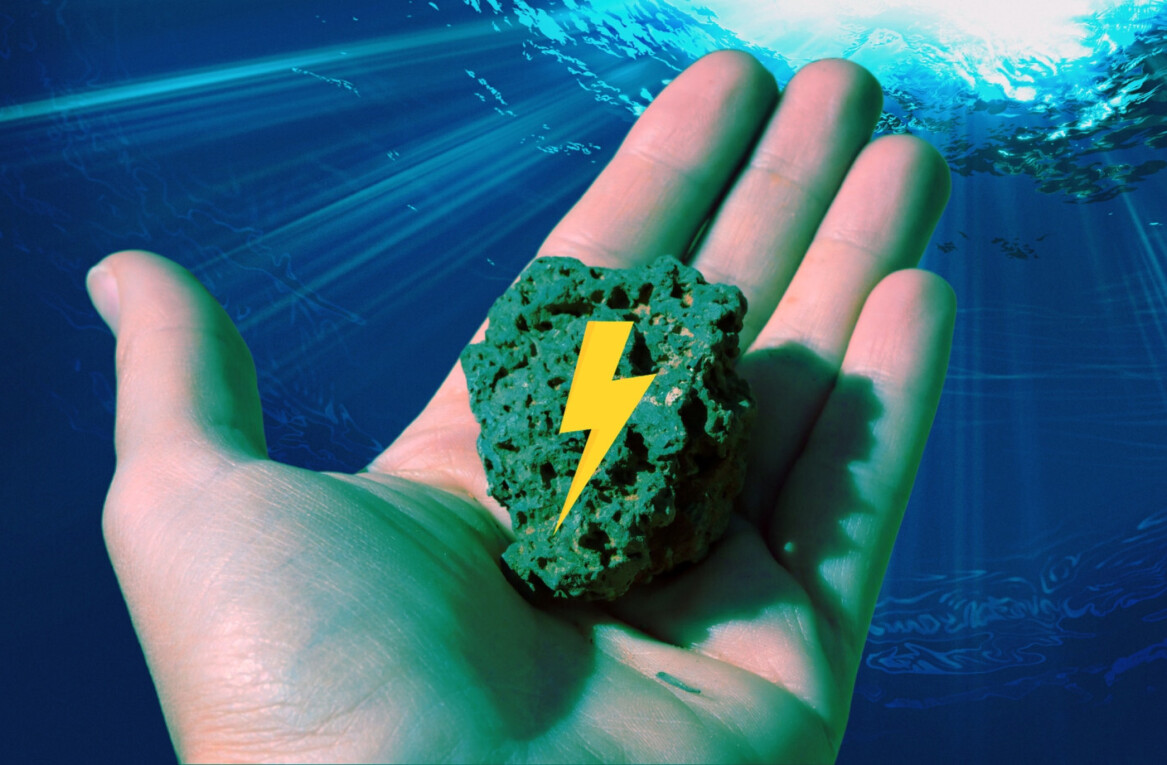
In the middle of last week, the science fiction and fantasy author Jay Lake published several pictures of himself on his blog. In them, he succumbs to the will of a hair stylist whose only directive was to “go crazy.” The stylist began by shearing the sides of Lake’s head so all that remained was a fine, gray mohawk. His hair was then dyed green on the sides and blue on top, with red branches weaving their way toward the back. This was not a typical hairstyle for Lake, but rather an attempt to make the best of a dire situation; in a short time the writer would begin losing all his hair as a result of chemotherapy.
If there is a certain level of morbidity to such an action, Lake doesn’t care. He’s committed to exposing, with brutal honesty, the story of his cancer battle, and over the last few years has developed a fervent following from cancer victims and their loved ones. His success derives from his distinct voice and the ability to dive into the sometimes labyrinthine issues that surround cancer and its treatment.
On a post titled “Becoming the invisible man,” he addressed the way that cancer has affected his writing career, describing how people, acting with the best of intentions, avoid asking him to speak and perform at conventions because they don’t want to bother a suffering cancer patient. “It is absolutely true that with cancer and its discontents, there are periods of time when I cannot travel, or, frankly, even leave my house,” he wrote. “But those aren’t all the time by any stretch of the imagination. For my part, I’d much rather be asked and decline or defer an invitation after discussion, than be dropped from consideration in the first place.” He has posted pictures of tattoos meant to “mark” his cancer, has written about his bowel movements and sexual impotence, and has even uploaded YouTube videos from his stays in hospitals. All of this has been done while he maintained a full-time job and a prolific writing career, one that has spawned hundreds of short stories and several novels.
Though Lake has been writing for decades, he didn’t start regularly selling his science fiction and fantasy work to professional outlets until he was in his early 40s. But once he broke into the market he certainly made up for lost time; in those first few years he managed to sell over 100 short stories to magazines and anthologies while also editing Polyphony, the critically acclaimed annual anthology of short fiction. During this period he became a frequent attendee to dozens of speculative fiction conventions every year and was known for wearing outlandish outfits to differentiate himself in the crowd (not an easy feat at a science fiction convention). Many other writers, both amateur and professional, were amazed at his productivity, especially his ability to churn out thousands of words of fiction in just a few hours. Eventually, he segued into writing novels, and in 2007 Tor Books published his first trade novel, called Mainspring (his first novel had been published by a small press in 2005). He continued to write and publish books while also producing a healthy annual dose of short fiction.
The first sign of his impending cancer battle came in 2008. On April 28, the day Mainspring was released in mass market paperback, Lake began losing a massive amount of blood — as much as 25 percent — and was rushed to the ER. Several days after doctors conducted an emergency blood infusion, it was determined that the bleeding had been caused by an ulcerated tumor. At the time, Lake considered himself very lucky; they’d managed to catch the cancer in its first stage and it seemed that it was a simple matter of surgically removing the tumor along with part of his colon. If the tumor hadn’t started bleeding, he reckoned, he would have remained blissfully unaware of its existence until it was too late. But though he still maintains that the treatment was the right one based on the information he and his doctors had, he thinks that by refraining from using chemotherapy they may have failed to eradicate the cancer completely. In April 2009, doctors found a tumor on his lung, but it took about six months to confirm its presence because “evidence was pretty strong against it being a tumor given that I had been Stage 1.” But after the mass nearly doubled in size, it became impossible to ignore. In November that same year, surgeons went in and resected the tumor and the surrounding tissue. This was followed by Lake’s first round of chemotherapy, a treatment that he quickly learned to loathe and fear.
 In his blog he recounted the draining effect the treatment had on his life and productivity, how it sapped his will power and muddled the thinking progress. “My brain used to be a finely-honed precision machine,” he wrote earlier this year. “Now it’s finally a moaning imprecise bean.” In a post last December, he recounted the role the treatment played in his breakup with his then-girlfriend. “Another cost of the cancer, to me, was that I was largely checked out mentally, emotionally and socially from the relationship between November of 2009 (the lung surgery) and October of 2010 (recovery from the liver surgery), and most especially from February to August of 2010 (as the chemo side effects grew, peaked, then tapered off). There were eleven months of her emotional and life transitions that I was essentially not present for.”
In his blog he recounted the draining effect the treatment had on his life and productivity, how it sapped his will power and muddled the thinking progress. “My brain used to be a finely-honed precision machine,” he wrote earlier this year. “Now it’s finally a moaning imprecise bean.” In a post last December, he recounted the role the treatment played in his breakup with his then-girlfriend. “Another cost of the cancer, to me, was that I was largely checked out mentally, emotionally and socially from the relationship between November of 2009 (the lung surgery) and October of 2010 (recovery from the liver surgery), and most especially from February to August of 2010 (as the chemo side effects grew, peaked, then tapered off). There were eleven months of her emotional and life transitions that I was essentially not present for.”
(On mobile? Click here for next page)
After this round of chemo the doctors conducted a routine scan and found what they thought was a tumor on Lake’s liver. They were incorrect in this assessment but didn’t discover this until they went in to surgically remove it. After that, he returned to “something approaching normal” until April of this year, when they again found what looked to be a tumor on his liver. Only this time it was real. In his blood there were high levels of CEA, a protein that spikes when there’s a tumor growth, and a subsequent scan of his metabolic activity confirmed the diagnosis. “Last time I had surgery followed by chemo,” Lake told me in a phone interview. “This time what they want to do is a partial round of chemo, interrupted for surgery, followed by more chemo. And the reason behind why they’re doing a partial round before the surgery is because that way they’ll be able to tell if this tumor is being addressed by the chemo or not. Some tumors are chemo resistant.”
Many patients would be immobilized by these taxing treatments, and while Lake is no exception to the detrimental effects of chemo and surgery, he still manages to stay incredibly productive. “To put it in context, last year when I had six months of chemotherapy, I still managed to write 250,000 words of first drafts,” he said. “What happens is that whenever I have a surgery I lose about a month of writing because of the recovery time for the surgery. That has less to do with the surgery itself — though there’s a week or two of total physical blackout — than the anesthesia bubbling around my brain. It really messes me up.” In many ways, the chemo is even worse, though its effects are much more gradual. For the first four months or so, he said, he’s able to continue writing (though how much he writes decreases with each dose), but after that he experiences “a drop to a room temperature IQ.” Eventually, his fiction writing comes to a halt.
If you happen to click into any of the various comment threads of his blog posts, it quickly becomes apparent that Lake has amassed a devoted following within the cancer community, one that extends far outside his fiction fanbase. “Excellent!,” wrote one commenter on a post-surgery entry revealing the false diagnosis of a liver tumor. “My father just received similar news this past week about his bladder. It’s gone, but it contained nothing cancerous-looking.” Others are not so upbeat. “I don’t know how oncology doctors do it either,” one person commented on a post about Lake’s doctor visit. “Russy’s showed up for his birthday party in hospice, which was the last full day he had on earth. He ate cake with us and played guitar and looked – for one brief moment – like he might cry. It’s a higher calling for sure.”
Lake told me he has a digital footprint of about 10,000 daily readers and estimated that about 25 percent of those are there because of his cancer posts. He has become, in some ways, a kind of online voice for the community, one who can put into words the feelings many of them find so hard to express. “One of the reasons I started to blog about cancer was because I realized right away that it’s something that most people don’t like to talk about,” he said. “And because it’s not something people want to talk about, people who do get into this situation don’t have a lot of access to information. It’s hard to find really honest information about things like the emotional impact or the sexual dysfunctions. The doctors don’t want to talk about it and most patients don’t want to talk about it to each other.” Lake gets far more fan mail for his cancer blogging than he does for his fiction. A person may write to him about how his father died of a similar cancer last year and how it was difficult to understand how his father felt until reading Lake’s post. One cancer sufferer told the writer via email that his posts were used to explain the patient’s experience to family members. “Occasionally they’ll say things like, ‘I have three months to live, and thank you for giving me a voice,'” Lake said. “And I answer every single one of those. I answer all my fan mail anyway, but those are the ones I really give attention to, because I know perfectly well that for anyone who writes me there are at least 10 more who didn’t.”
No one can doubt that Lake is throwing all his energy into fighting his cancer, but at the same time his blog is a rejection of the “cult of optimism” that purveys so much cancer literature. Cancer is a terrible sickness to experience, he said, and his blog goes to great lengths to convey this. “I’m not dissing positive thinking,” he explained. “But honestly, though I’m sure the cult of optimism serves people very well, it tends to mask the fact that this is a desperate and terrible disease and you have every right to feel terrible.”
Ultimately, Lake has mixed feelings about the devoted following from the cancer community. When he set out several years ago to become a professional writer, never did he imagine that his most widely-read work would center around his struggle to survive. “On the one hand I do feel like I’m doing good in the world,” he said. “But on the other hand I’d rather be known as the guy who wrote this book or that book than as a relatively famous cancer patient. I’m proud of it, don’t get me wrong. It’s not as if I wish it weren’t happening. If I have to go through this anyway, I might as well get some significant good out of it.”
This past Friday, Lake embarked on the first of what would be yet another long string of chemo sessions. His blog post marking the occasion, as usual, didn’t bother with any false optimism:
The social and emotional landscape of my life is very different on this trip through chemotherapy, and that practice seems like it belonged to another, happier person who isn’t me any more.
I’m also a lot less frightened this time. Which is not to say I don’t have moments of fear and panic, but the Fear has been almost entirely absent. Mostly I’m pissed off. That, and feeling trepidatious.
The human mind is an amazing thing. That something even this horrific can come to feel routine is… bizarre.
Get the TNW newsletter
Get the most important tech news in your inbox each week.





